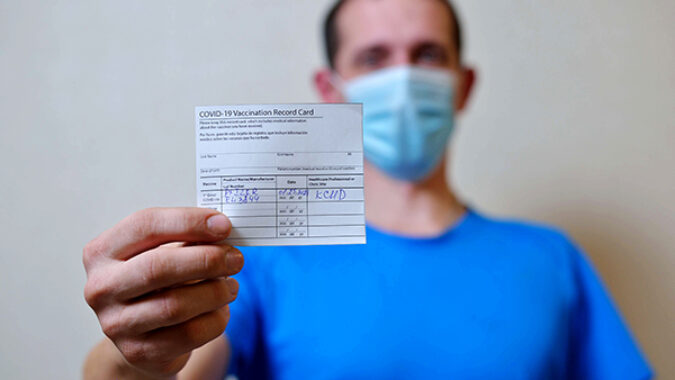At least 48 major U.S. corporations, including airlines, retailers, tech companies, banks, and healthcare companies, are requiring employees returning to the workplace this month to be vaccinated against COVID-19, according to a recent report in Fortune.
Some of these corporations have set more forgiving terms than others, such as offering employees the option to keep working from home, rather than risk termination. Other companies, such as CNN, have already fired employees who have refused to comply with the vaccination policy.
CEOs who have stopped short of an outright vaccine mandate are requiring unvaccinated employees to wear masks, submit to regular COVID-19 testing, and in some cases, pay a health insurance surcharge. Delta Air Lines CEO Ed Bastian recently announced that unvaccinated Delta employees must pay a $200 monthly health insurance surcharge starting Nov. 1 because the cost to treat an unvaccinated Delta worker hospitalized with COVID-19 has averaged $50,000 per person.
A Gallup poll released on Aug. 18 found that 52% of workers support a vaccine requirement in the workforce, 10% said they were neutral about vaccinations and 38% oppose them. Gallup said 29% of employees reported they were “strongly opposed” to COVID-19 vaccines.
“The strong feelings about COVID-19 vaccinations put companies and workers at a crossroads,” Gallup Senior Editor Jeffrey Jones said in his summary of the poll’s findings.
“The majority of employees are vaccinated and, for the sake of their safety, many strongly favor requiring their co-workers to be vaccinated. Yet, companies also risk losing productive and talented workers who disagree with their vaccination policies and may have to choose between getting vaccinated or quitting their jobs. Either way, employers’ decisions about vaccination requirements are likely to impact their company culture and employee retention,” Jones said.




